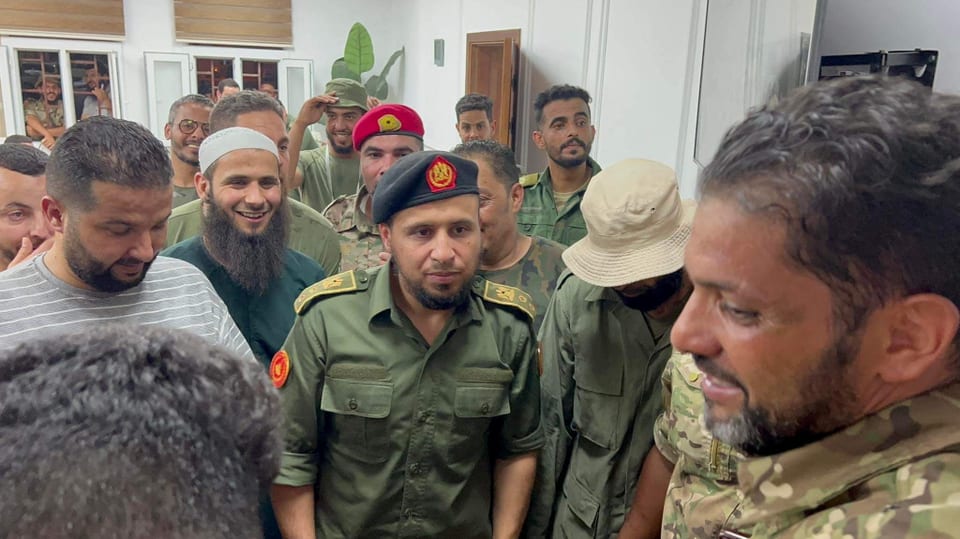What is it about? After heavy fighting in Tripoli, the situation has calmed down somewhat. On August 15, fighting broke out when members of the Special Deterrence Force – Rada for short – took the commander of the 444th Brigade into custody. Mahmoud Hamza of the 444th Brigade has since been released and returned to his unit. SRF foreign editor Veronika Meier says: “The incident was probably a kind of power struggle between two of the largest and most influential militias in Tripoli.” It is not known exactly why Hamza was taken into custody. However, it had become clear that Rada had gone too far with this step.
Legend:
Mahmoud Hamza was able to return to his brigade.
Reuters/44. Brigade/Handout via Reuters
balance sheet: According to a spokesman for the Libyan Center for Emergency Medicine, 55 people were killed and more than 150 injured in the fighting. It is not known how many civilians were among the victims. According to news agencies, numerous people were brought to safety because they were surrounded by fighting in residential areas in Tripoli.
Political status in Libya: To a certain extent, Libya has fallen apart since the fall of long-term ruler Gaddafi in 2011. Libya is a country with two rival governments and with militias supporting those governments. “The militias in western Libya have seen a kind of land consolidation in recent years. Today there are fewer of these armed groups, but they have gained influence,” says the foreign editor.
Militias and Politics: “The government in Tripoli has to rely on the militia leaders and their people to be able to survive at all,” says Meier. However, the government does not have these militias under control. “The militias will not be held accountable. And they have privileged access to the money pots, including the state.” It’s also about corruption. There are people in the state apparatus who owe their position specifically to the militias. “The militias have become actors that you can no longer ignore in Libya,” says Veronika Meier.
